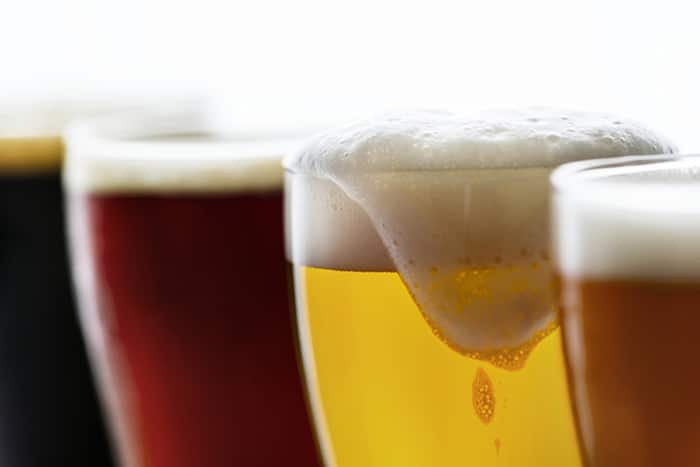
C-K substance-use nurse weighs in on alcohol use during COVID-19
By Jenna Cocullo
Maintaining a safe supply of alcohol during the COVID-19 pandemic will help support the capacity of Chatham-Kent’s and the province’s health-care system, according to a Chatham-Kent Public Health nurse who works in substance use.
Premier Doug Ford announced the list of essential businesses allowed to remain open during the COVID-19 pandemic would be further reduced to 44. LCBO and The Beer Store made the list.
“It’s absolutely a public health issue,” said Jordynne Lindsay, RN, BScN Public Health nurse, adding that it is not the role of CK Public Health to interpret the Government of Ontario’s list of essential services.
While the decision was made to help keep people that use alcohol safe, employees at the LCBO and Beer Store felt their health was at risk.
“Some people are not happy and didn’t like the decision, so they took time off work,” said one employee on the condition of anonymity. “I see the point, if we were to close down, the people that depend on their beer and liquor would go through withdrawal. However, I don’t feel it is essential and is putting us at risk.”
Between 3,000 and 15,000 people could die from COVID-19 with the measures already put in place to slow the spread of the virus, Dr. Peter Donnelly, CEO of Public Health Ontario said, and 100,000 would have died without the provincial stay-at-home orders.
“I think it is so important to highlight that issues related to mental health and substance use do not come to a halt when there is a global pandemic,” said Lindsay. “As a public health nurse working in the area of substance use, I do not feel that there is a black-and-white answer to this debate. There very rarely is in the world of substance use; there is mostly a lot of grey area.”
According to the most recently available data, between 2015-2017, substance use and addiction was the primary reason for 1,500 visits to the emergency department and 200 hospitalizations.
In 2015-2016, more than 25 per cent of Chatham-Kent’s population self-reported using alcohol in excess of the low risk alcohol use drinking guidelines, which is above the provincial average. Alcohol is second to opioids as the leading problem substance reported by people accessing substance use treatment services in the community.
“Alcohol withdrawal can be a life-threatening health condition. You can imagine the impact that high-risk alcohol use has on our community and health-care system. Access to a safe and legal drug supply is an evidence-based harm-reduction approach,” Lindsay said, also noting that the data is also likely an underrepresentation of the true situation in Chatham-Kent, as self-reporting has higher margins of error due to stigma.
Lindsay said the COVID-19 pandemic has undoubtedly increased trauma and stress for people in a number of ways, including unemployment, the constant surge of overwhelming information, the disruption of services and supports, and disconnection and isolation, which could increase the risk for problematic substance use.
With self-isolation, it has been more challenging to create opportunities for all of the protective factors that the public health sector would normally, such as social connection, welcoming school environments, meaningful employment and physical activity.
“From a prevention perspective, we know that a significant reason people use substances is to cope with trauma and stress. So with all of the new stressors and this rapidly changing environment we are in, it is important to know that alcohol is a drug, and that no amount of alcohol use is without risk,” Lindsay said.
She added that for those using alcohol during these times, there are ways to lower health risks and addiction by following the Low Risk Alcohol Drinking Guidelines which recommends 10 drinks a week for women, with no more than two drinks a day most days, and 15 drinks a week for men, with no more than three drinks a day most days.
According to the guidelines, drinking slowly and having no more than two drinks in any three hours can help promote safer drinking. For every drink of alcohol, have one non-alcoholic drink and eat before and while you are drinking. Always consider your age, body weight and health problems that might suggest lower limits.
Lindsay said caregivers can check out a resource called “Parents Matter” for ways that parents and caregivers can help prevent and delay alcohol and other drug use with teens.
If anyone needs support throughout the COVID-19 pandemic for mental health and substance use related concerns, they can connect with the Chatham-Kent Drug Awareness Council (CKDAC), which has local resources, information, services and supports.
Many community organizations and agencies that are a part of the CKDAC are still providing services over the phone, via text, or through video conferencing.






